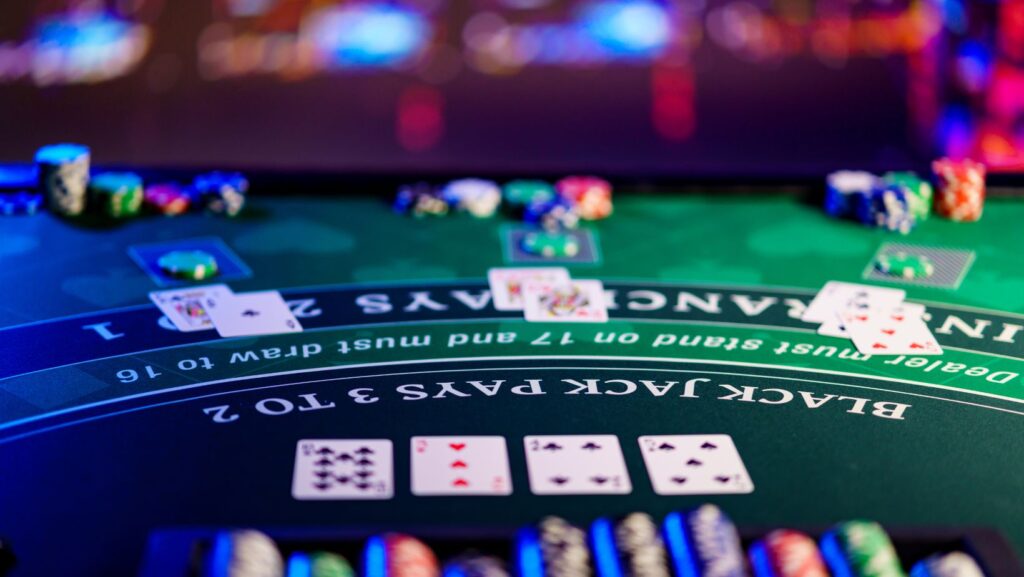At its core, gambling is a numbers game. Behind every bet, roll of the dice, or hand of cards lies cold, hard mathematics governing the odds and probabilities of various outcomes. By understanding key statistical and probability concepts, players can better comprehend how casino games work and the inherent mathematical advantage the house holds. This article will explore essential mathematical ideas underpinning gambling to shed light on the science fueling this billion-dollar industry.
House Always Wins: Understanding House Edge
House edge refers to the mathematical advantage casinos hold over players in any game of chance. Also called house vigorish or rake, this reflects the percentage of each bet the house expects to retain over extended play. House edges vary by game but ensure that casinos reliably profit over time.
Here are house edges for major casino games at Casino 777:
| Game | House Edge |
| Blackjack | 0.5% if using perfect basic strategy |
| Craps | 1.4% on basic bets |
| Roulette | 5.26% on American wheels; 2.7% on European wheels |
| Slots | Generally 4-10% depending on machine |
As we can see, the house maintains an inherent mathematical edge across all major casino games. This explains how casinos reliably profit over time – the math is simply in their favor. Understanding house edges also helps players set realistic expectations for gambling outcomes over both the short- and long-term.
Random Outcomes: How Probability Drives Games of Chance
Games of chance rely heavily on probability theory – the branch of math studying the likelihood of random events. Probability provides mathematical models for random processes like rolling dice, spinning roulette wheels, or shuffling cards. It allows us to precisely calculate the odds and probabilities of different outcomes.

For example, the odds of rolling a 6 on a standard die are precisely 1 in 6. This is because a die has six faces, each with an equal probability of landing face up. By extension, the odds of not rolling a 6 are 5 in 6. Probabilities are expressed as decimals between 0 and 1, reflecting the percentage chance of an outcome occurring. The probability of rolling a 6 is 16.7% (calculated by 1 ÷ 6 = 0.167), while the probability of not rolling a 6 is 83.3% (calculated by 5 ÷ 6 = 0.833).
Understanding probability theory allows gamblers to quantify the exact odds and chances of outcomes in games of chance. However, it also reveals how the math inherently favors the house in nearly every casino game.
Risk vs. Reward: How Gambling Mathematics Supports the House
When examining any casino game, it’s instructive to compare the risk versus potential reward using probability and payout data. Comparing the chances of winning to the payout odds quickly reveals the mathematical edge reserved for the house.
Let’s examine roulette as an example. The probability of correctly guessing a single number on a European roulette wheel is 1 in 37 (2.7% chance). However, the payout odds for hitting a single number are 35 to 1. So while the chances of winning are low, the payout for doing so seems attractively high.
However, if we multiply the probability of winning (0.027) by the payout odds (35) we get 0.95. This expected value is far below the actual 1 credit wagered potentially to win 35 credits. The difference represents the house edge for that roulette bet (2.7%).
Extending this risk-reward analysis across all possible roulette bets reveals that the mathematical edge overwhelmingly favors the casino in every scenario.

Understanding this concept is key to dispelling irrational hopes of beating the house through sheer luck alone.
Grasping Gambling Mathematics: Key Takeaways
By exploring mathematical disciplines like probability, statistics, and payout ratios, we can peel back the veil of randomness surrounding games of chance. Measurements like house edge, random distribution models, and risk-reward ratios reveal an underlying mathematical order governing the controlled chaos of casino games.
While short-term results may vary widely based on chance, the math indicates that the casino will inevitably profit over time. The house edge provides a small but systematic advantage across thousands of bets that allow gaming institutions to reliably succeed.
So, while lady luck may smile on bettors here and there, the math makes one thing very clear: when it comes to gambling, the house always wins. Understanding this gives players a healthy perspective on betting outcomes and arms them with information to make educated wagers.
Though we can’t defeat the mathematical certainty that provides casinos with an inherent advantage, grasping gambling mathematics helps level the playing field so we can at least understand the game.
